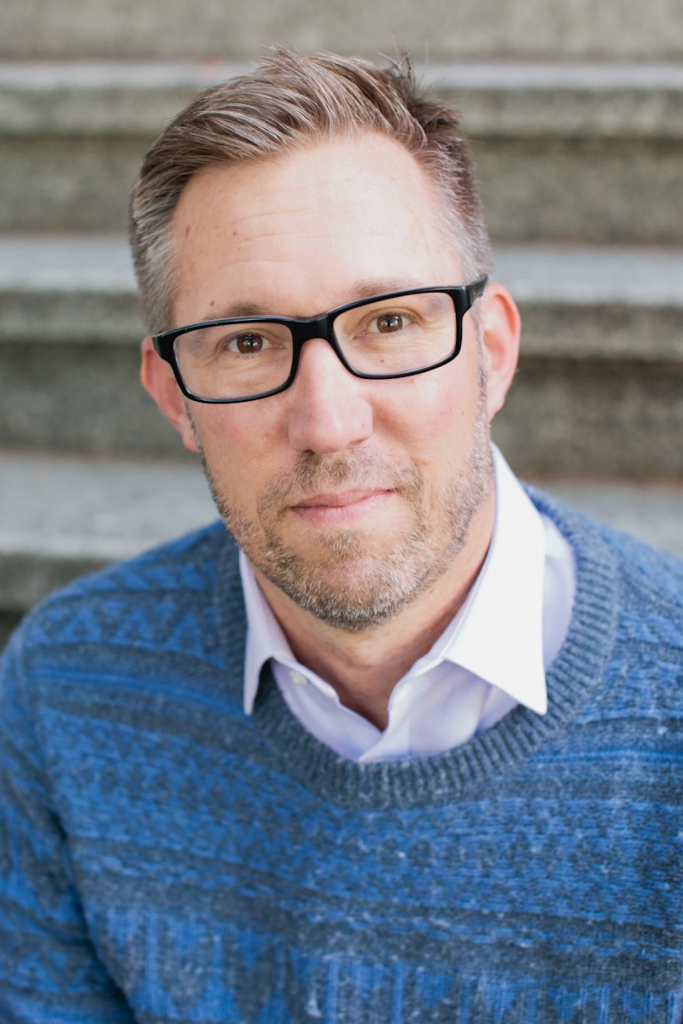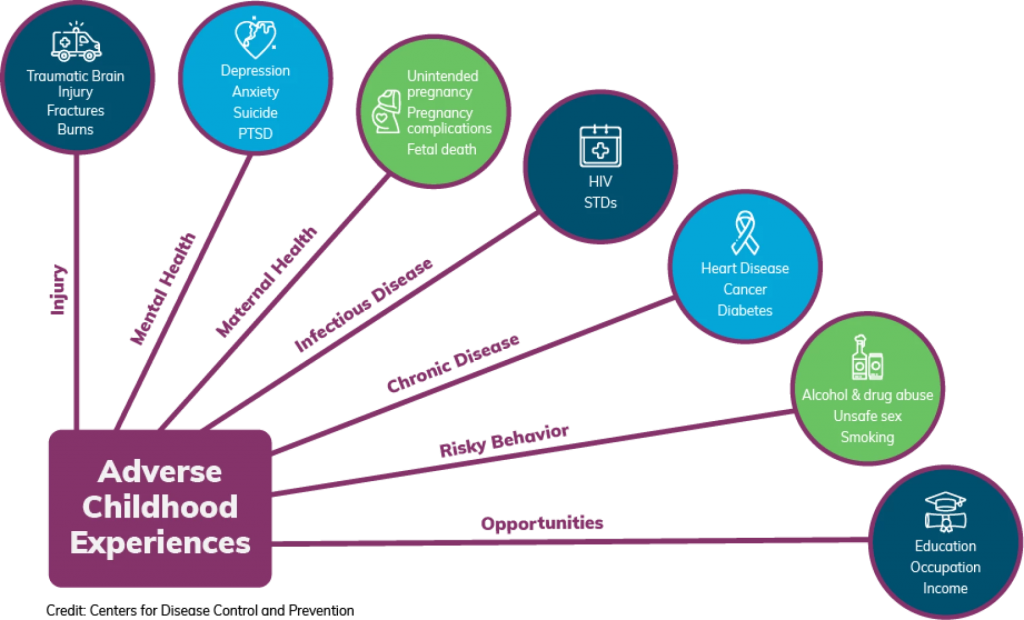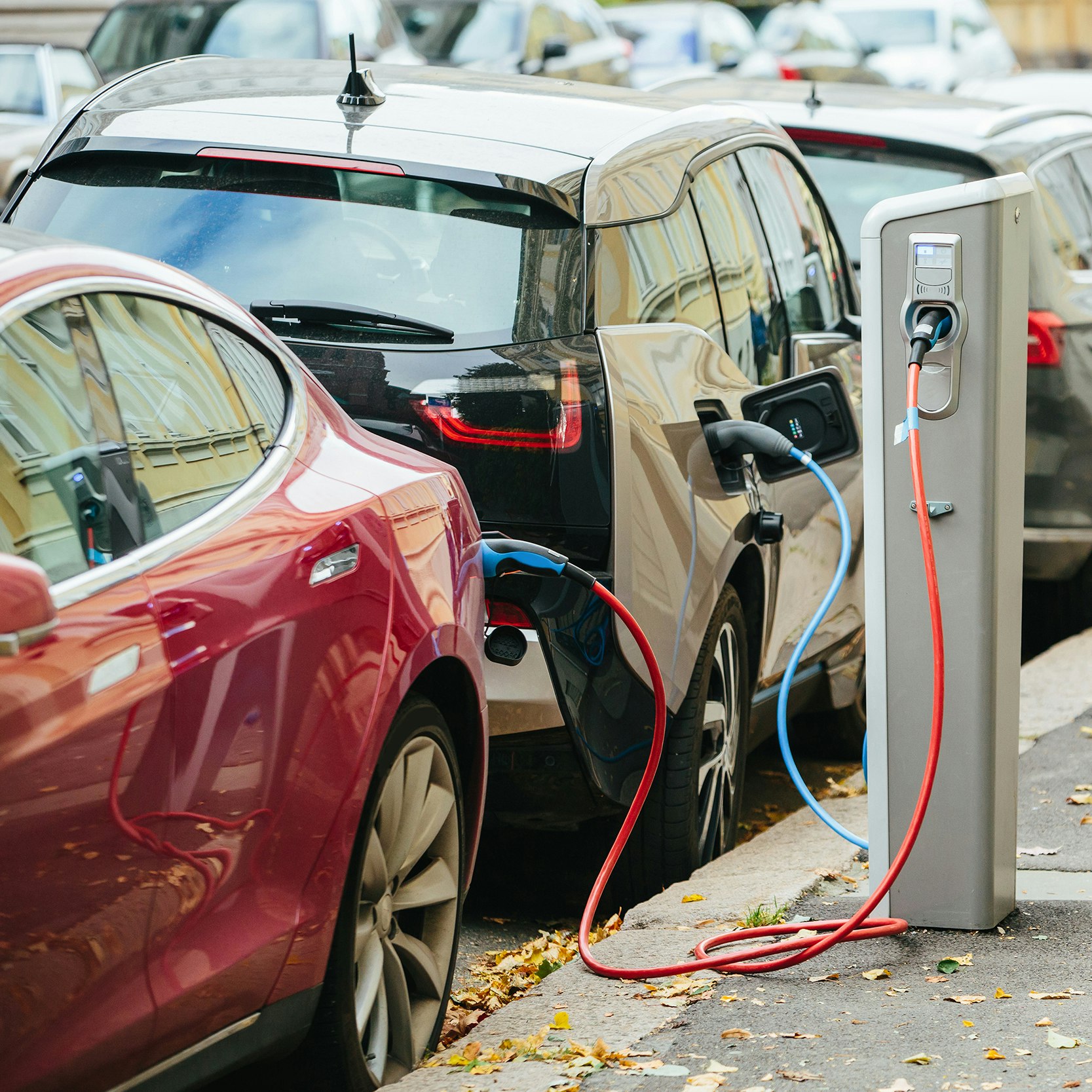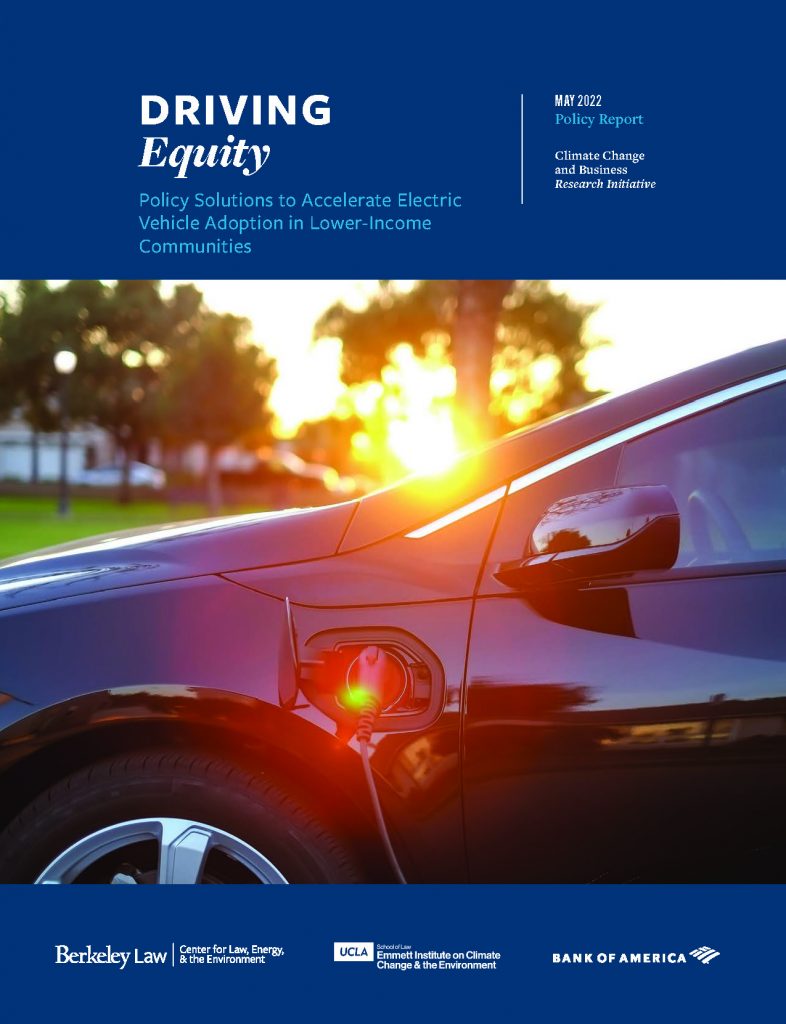
Tonight on State of the Bay at 6pm PT, we’ll discuss Governor Newsom’s plan to address “price gouging” by the oil industry. Joining me will be Sameea Kamal, California politics journalist at CalMatters.
Then we’ll talk to Dr. Aric A. Prather, professor of psychiatry and behavioral sciences at UCSF, about his new book The Sleep Prescription: Seven Days to Unlocking Your Best Rest. He’ll share his science-backed strategies to help us all get a better night’s sleep.
Finally, we’ll hear about fun and festive holiday events happening around the Bay Area with Anne Schrager, author at Datebook and calendar producer for the San Francisco Chronicle.
What would you like to ask our guests? Post a comment here, tweet us @StateofBay, send an email to stateofthebay@kalw.org or leave a voicemail at (415) 580-0718.
Tune in tonight at 6pm PT on KALW 91.7 FM in the San Francisco Bay Area or stream live. You can also call 866-798-TALK with questions during the show.

California made history this year when Governor Newsom signed a long-sought reform to deregulate local parking requirements on infill projects (as I blogged about back in September). But could one provision of the new law undermine its effect on the ground?
The issue is a provision in AB 2097 (Subdivision 65863.2(f), for anyone following along at home) that ostensibly exempts from this law any local requirements for electric vehicle charging installations in multifamily dwellings or commercial properties or to allow accessibility to persons with disabilities. In other words, if a local government required not just parking (which would now be illegal under the new state law) but also parking specifically for EVs and those with disabilities, what happens to that second part of the requirement?
The implications are significant. A city with such an EV or disability-access requirement on the books could potentially argue that developers will still need to provide some minimum parking that has these features. In fact, they could use the requirements as a backdoor parking mandate where none otherwise now exists. While most people support EV charging and disabilities access requirements for parking spots, doing so in the context of this legislation would clearly contradict the intent and plain language of the law.
When AB 2097 passed, it specifically deregulated parking mandates that typically come from local zoning codes, which have traditionally required developers to build a certain number of parking spaces for each housing unit and/or each 1,000 square feet of building area. EV and ADA parking requirements, however, usually come from a different section of local requirements, namely the building codes. Often these require that a certain percentage of any parking spots meet the additional standards of offering electric vehicle charging and/or accessibility. Crucially, building codes do not usually require that developers build any amount of parking—just that when they do, the parking meets certain standards.
In response, AB 2097 specifically preserved these building-code percentage standards in order to ensure that any parking provided at least advances sustainability and accessibility goals. But the provision was not meant to provide an easy out for local governments to circumvent the law’s fundamental goal of ending parking mandates near transit. Otherwise, cities could simply mandate a minimum number of parking spaces that must include electric vehicle charging (a percentage of which would by law also be handicap-accessible), and then AB 2097 would cease to have any effect at all.
So take a city that requires 30% of all required parking to have an EV charger. In that instance, they might argue that AB 2097 in fact only bans 70% of the parking mandate. Following that logic, if the city mandated 100% of spaces must include EV charging, then AB 2097 would effectively ban zero percent of parking mandates. That outcome would completely negate the purpose and impact of the new law.
The effect could be detrimental to infill projects. Imagine a small-lot developer who wouldn’t otherwise build any parking spots on a site under AB 2097. If cities now insisted that the developer provide EV charging and disabilities access, the developer would have to build parking where none was contemplated. That means providing two discrete accessible paths of travel from the street: one from the sidewalk and one from a parking facility that wouldn’t otherwise be there. This outcome would likely lead to developers continuing to orient buildings around parking spots rather than pedestrian, bicycle and transit access.
Instead, the only defensible read of the provision is that if a city requires a certain percentage of parking spots to have EV charging and be accessible to those with disabilities, those percentages should still apply: but only if the developer decides to build any parking at all. If the developer opts out of on-site parking, then a percent of zero is zero. If the developer wants to provide only half the parking that would have been locally required under the old regime, then the number of EV and disabilities-accessible spots should be halved.
Ultimately, the point of AB 2097 was to reduce dependence on automobiles, enhance access to buildings by non-vehicle modes, and lower the cost of building all types of housing near transit. If there’s parking, then open it to EVs, those with disabilities, and other local requirements. But if none exists, local governments shouldn’t force requirements that run afoul of the law.
We’ll see if cities with these requirements try to exploit this provision. If so, it may take some state agency guidance to make this point, or worst case clean-up legislation to clarify. Otherwise, one of California’s most important climate and land use bills could face some unfortunate headwinds on implementation.

Tonight on State of the Bay, we’ll get election eve analysis from UC Berkeley Institute of Governmental Studies (IGS) pollster Mark DiCamillo.
Plus we’ll explore California’s new proposed regulation to phase out fossil-fuel trucks, as well as the concerns that both environmental groups and trucking businesses have about it. Guests include:
- Sam Wilson, Senior Vehicles Analyst, Union of Concerned Scientists
- Daniel Sperling, California Air Resources Board member, director of the Institute of Transportation Studies at the University of California, Davis
- Chris Shimoda, Senior Vice President of Governmental Affairs, CA Trucking Association
Finally, we discuss a new documentary on efforts to cure Type 1 Diabetes called The Human Trial with filmmakers Lisa Hepner and Guy Mossman.
What would you like to ask our guests? Post a comment here, tweet us @StateofBay, send an email to stateofthebay@kalw.org or leave a voicemail at (415) 580-0718.
Tune in tonight at 6pm PT on KALW 91.7 FM in the San Francisco Bay Area or stream live. You can also call 866-798-TALK with questions during the show.

On tonight’s State of the Bay, we discuss Proposition 30, which would tax the wealthy to fund wildfire mitigation and electric vehicles. Why are Governor Newsom and the teachers unions against it? How will you vote? Joining us is Sammy Roth, staff writer for the Los Angeles Times covering energy.
Then we’ll focus on Adverse Childhood Events (aka ACEs), which have been linked to poor mental and physical health as adults. How can we mitigate these negative effects? What are recent studies showing? What policies are in place to protect our children? Our guests include:
- Dr. Dayna Long, pediatrician, researcher and director of Community Health and Engagement at UCSF
- Dr. Nicole Bush, Associate Professor, Psychiatry UCSF Weill Institute for Neurosciences and clinical researcher
Finally, we’ll interview Maryam Qudus, also known as Spacemoth, as she discusses her debut album No Past No Future.
What would you like to ask our guests? Post a comment here, tweet us @StateofBay, send an email to stateofthebay@kalw.org or leave a voicemail at (415) 580-0718.
Tune in tonight at 6pm PT on KALW 91.7 FM in the San Francisco Bay Area or stream live. You can also call 866-798-TALK with questions during the show.

I’ll be a guest on today’s KQED Forum at 10am PT, discussing California’s plans to phase out sales of new gas-powered cars by 2035. The new regulations announced last week by the California Air Resource Board formalize Governor Gavin Newsom’s 2020 executive order which proposed banning the sale of cars that run on fossil fuels.
This move is a much-needed step to address climate change. The show will cover what it means for the world’s fifth largest economy and the state that invented car culture to go electric, and they’ll open it up to listener questions: are you ready to get an electric car or will you be hanging on to your gas-powered car as long as you can?
Joining me on the panel will be:
- Russ Mitchell, Automotive Editor for the Los Angeles Times
- Margo Oge, Former director, US EPA Office of Transportation and Air Quality; Author of “Driving the Future: Combating Climate Change with Cleaner, Smarter Cars”
You can stream it live or tune in via KQED in the San Francisco Bay Area!

Last week, California regulators approved a first-in-the-nation plan to ban the sale of new gas-powered vehicles starting in 2035. Tonight on State of the Bay, we’ll discuss the new regulations with Liane Randoph, chair of the California Air Resources Board, the agency responsible for implementing the plan.
Then we’ll talk about the little-known Minerva University in San Francisco, which recently knocked MIT out of first place for the “most Innovative university in the world.” Joining us will be Mike Magee, President of Minerva University.
Finally, we’ll speak with Nicole Meldahl, executive director of the Western Neighborhoods Project, about a slice of San Francisco history.
What would you like to ask our guests? Post a comment here, tweet us @StateofBay, send an email to stateofthebay@kalw.org or leave a voicemail at (415) 580-0718.
Tune in tonight at 6pm PT on KALW 91.7 FM in the San Francisco Bay Area or stream live. You can also call 866-798-TALK with questions during the show.

It’s another double shot today of me hosting shows on KALW 91.7 FM San Francisco Bay Area. First, at 10am PT, I’ll be guest hosting Your Call’s One Planet Series, where we’ll discuss the viability of carbon capture technology in combating climate change. Carbon capture and storage is the process of capturing and storing carbon dioxide from polluting sources and storing it deep in the ground.
The just-passed (but not yet signed) Inflation Reduction Act includes a change in a crucial tax credit for the carbon capture industry—increasing the government subsidy for capturing CO2 from polluting sources from $50 to $85 per metric ton.
Some environmentalists call these carbon capture subsidies a handout to the oil industry and a distraction from urgently needed actions. How effective is this technology? Joining us to discuss are:
Tony Briscoe, environmental reporter with the Los Angeles Times
Naomi Oreskes, Henry Charles Lea Professor of the History of Science and Affiliated Professor of Earth and Planetary Sciences at Harvard University.
Then we’ll cover the socio-environmental impacts of lithium mining to produce electric vehicles. Joining us will be Jennifer Krill, executive director of Earthworks, a nonprofit organization committed to protecting communities from the adverse impacts of oil and gas and mineral extraction.
Second, later today on State of the Bay at 6pm PT, we’ll cover the latest in San Francisco’s housing saga, as the state threatens to take over land use planning for the City. Plus we’ll discuss the rise of autoimmune disorders and learn about California’s youth governor’s race, covered in a new documentary.
Tune in at 91.7 FM in the San Francisco Bay Area or stream live at 10am PT for Your Call and then again at 6pm PT for State of the Bay. What comments or questions do you have for our guests? Call 866-798-TALK to join the conversation!
Some upcoming and recent events:
First, this morning at 10am PT I’ll be on KQED Forum to discuss the future of nuclear energy in California. I’ll be on a panel with energy reporter Sammy Roth of the Los Angeles Times and Jessica Lovering from the Good Energy Collective. Stream live!
Next, I’ll be on a lunch panel with Liane M. Randolph, chair of the California Air Resources Board, on where California is going on climate policy and action. The event is entitled “Finding the Path to a Necessary Future: California, Climate, and Energy in the Coming Decades” and is being organized by the Environmental Law Institute. Register to attend in person at Baker Botts LLP in San Francisco or to access the livestream!
Finally, I appeared on EV Hub Live yesterday to discuss the state of domestic critical mineral supply for EV batteries, on a panel with Abigail Wulf, director of critical minerals strategy at SAFE (UPDATE: here’s an article on the subject in The Hill with some quotes from me). Video here:
Berkeley Law’s Center for Law, Energy and the Environment (CLEE) and UCLA Law’s Emmett Institute on Climate Change & the Environment released a new policy report today, Driving Equity: Policy Solutions to Accelerate Electric Vehicle Adoption in Lower-Income Communities. The report highlights key policy solutions to ensure that California’s electric vehicle (EV) transition is equitable and inclusive. Top-priority strategies include increased rebates and incentives for lower-income vehicle purchasers; financial and infrastructure support for charging networks; and funding for greater outreach by community-based organizations.
To achieve ambitious state greenhouse gas emission reduction and carbon neutrality goals, California must significantly reduce emissions from transportation, which is the single greatest source of statewide and national emissions. California has made significant progress to date through its ambitious incentive and regulatory programs, recently surpassing 1 million cumulative EV sales and representing nearly 40 percent of all EV sales nationwide.
But any California resident will know that today most EVs are higher-cost models, with base prices over $40,000 or $50,000 for newly released vehicles, federal tax credits unavailable for legacy manufacturers, and base-price models hard to locate. Most are driven by residents of higher-income areas and single-family homes with private or workplace charging access.
California will not effectively and equitably phase out fossil fuel vehicle sales in the next 13 years (as required by executive order) unless all Californians have access to affordable EVs and robust charging infrastructure that meet their transportation and community needs.
To address this challenge, CLEE and the Emmett Institute convened state, local, industry, and environmental leaders to develop priority solutions to increase EV adoption in California’s lower-income communities. Participants laid out a vision for an equitable EV transition that would place community stakeholders at the forefront of investment decision-making; embrace public transit and active transportation priorities while ensuring connectivity through affordable private and shared vehicles; include abundant public charging and support associated grid infrastructure; and ensure availability of durable EVs, including pickups, to meet a range of driver needs.
The group identified key barriers to this transition including limited financial capacity to acquire new higher-cost vehicles; limited access to convenient and affordable charging; and limited public awareness and relevant outreach. Policy solutions to overcome those barriers include:
- Increasing existing vehicle rebates to lower upfront purchase prices. The Clean Vehicle Rebate Project and Clean Cars 4 All programs, as well as utility rebates, offer generous incentives for EV buyers. However, even with vehicle and battery prices broadly declining, purchase prices are still higher than many lower-income residents can afford. No manufacturer has yet released a full-range economy model, and used EVs are hard to locate. Increased purchase incentives for lower-income buyers could help bridge the gap until more models and used vehicles are available (the CVRP and CC4A programs already include income caps).
- Creating a subsidized charging payment system. While EV charging costs are generally lower per mile than gasoline refueling, ultimately generating cost savings compared to gasoline vehicles, these savings can take many years to accrue. The legislature could create a subsidized card for use at public chargers to incentivize the switch, ensure that lower-income Californians have the financial ability to charge when needed, and promote installation of chargers in a range of communities.
- Funding community-based organizations. Programs like the San Joaquin Clean Vehicle Empowerment Collective have demonstrated the potential of CBOs to provide information, technical assistance, and outreach optimally targeted to the EV interests and needs of under-resourced communities. The legislature could provide direct funding for similar organizations throughout the state to ensure that all Californians are aware of and can access the incentives and benefits available to them.
You can download the report here. Please also join us on May 24 at 1pm PT for a webinar to discuss the report and transportation decarbonization equity with:
- Commissioner Patty Monahan, California Energy Commission
- Jessie Denver, East Bay Community Energy
- Paul Francis, KIGT
This post co-authored by Ted Lamm.

Now that Elon Musk has purchased Twitter with plans to take the company private, what are the potential consequences for the fight against climate change, the crucial issue of our time? Like him or not, the Tesla CEO has arguably been the most impactful private industry actor revolutionizing clean technology. Will the purchase affect his work on clean technology?
It would be hard to overstate Musk’s value to the global decarbonization effort. His company Tesla Motors, guided by his relentless and innovative vision, has helped revolutionize the automobile industry, completely transforming it in the face of legacy automakers who made only a token effort on electric vehicles at best for decades. Now they face extinction from their inability to embrace change. Given the transportation’s sector outsized role in contributing to climate change, Musk’s role in reshaping this industry has helped give the world a fighting to chance to avoid the worst of climate impacts.
As if that’s not enough, Tesla’s work on electric vehicles has also vastly accelerated energy storage deployment of lithium ion batteries, which are central to decarbonizing the electric grid along with intermittent renewables. What’s more, Tesla now has the promise to dramatically scale up heat pumps, an important all-electric means of heating and cooling spaces. The company has improved upon them for use in vehicles, with enormous upside for expansion to buildings.
And not to mention Tesla also has a solar division. Though it has admittedly languished since Musk purchased Solar City from his cousin a few years ago, in the long run solar panels pair perfectly with home battery storage and electric vehicles for consumers.
But all of that progress could be undermined going forward by Musk’s purchase of Twitter. The specific risk for the climate change fight is that Musk might become “distracted” running Twitter (i.e. absent at critical times, with his mental energy no longer devoted to providing critical vision and direction for the company, especially since he already runs a space rocket and tunneling company). If that happens, could Tesla lose its competitive edge?
Perhaps worse, Musk’s deal to take Twitter private is heavily leveraged, and his Tesla stock provides much of the collateral. If Twitter starts to sputter (the company lost $493 million last year, and Musk himself has acknowledged that this purchase is not about making money) and Musk defaults or has to sell, will that devalue Tesla stock, depriving that company of capital for its much-needed global expansion?
On the upside, given his track record, we could assume that Musk has the potential to work some magic for a social media site plagued by controversies over free speech and how it handles misinformation. If Musk can instill more confidence among social media users across the political spectrum in Twitter, while improving debates that counter climate misinformation, perhaps Twitter can be a force for positive climate education. But given the partisan entrenchment of views on both climate policy and science, this seems unlikely to occur.
If by some miracle Musk can turn Twitter into a cash cow, then another upside is that his additional resulting wealth could help bolster not only his proven companies like Tesla but potentially provide him extra funds to invest in new clean tech start-ups that could help reduce emissions in other industries. You never know.
On balance, a better Twitter could be a positive force for society. But given Musk’s key role in the climate fight, it’s hard to see the upside for the critical clean technology we need to reduce emissions and stave off the worst of climate change.
Of course, Musk is free to do what he wants with his billions. And he’s already arguably contributed more to the climate fight than any other company leader. But in the long run, a fight over social media won’t matter much if the world doesn’t get a handle on reducing greenhouse gas emissions.



